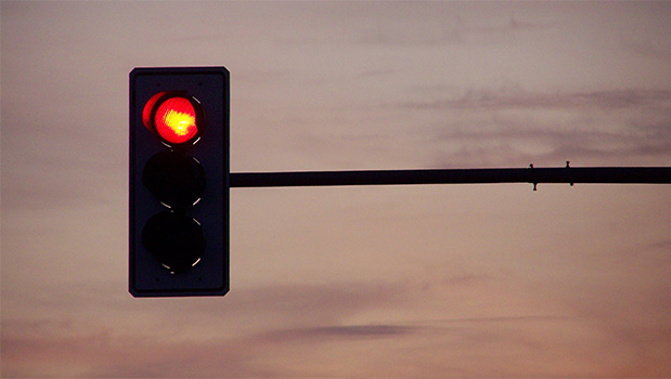
One expert says signs that pressure on the health system is easing is promising ahead of the Government's next traffic light update - which could see New Zealand in orange light territory for Easter.
But others say moving the country to orange next week would be "too soon" and decision-makers should be cautious.
Last week Prime Minister Jacinda Ardern said New Zealand was not ready to move to orange as the health systems remained under significant pressure.
The next traffic light review would be on April 14.
There were 9906 community cases yesterday, 626 hospitalisations and a further 10 Covid-related deaths - including a teenager.
The number of people in intensive care dropped from 29 on Thursday to 17 yesterday.
On the likelihood of New Zealand moving to orange next week, Professor Michael Plank said Covid-19 case numbers and hospitalisations were heading in the right direction.
"It's a gradual but consistent decrease in cases and hospitalisations.
"I noticed ICU numbers have dropped quite a bit as well ... which is also good news. I think overall there are signs that that pressure is abating and I think that's promising [for a ] potential move to orange."
University of Auckland Associate Professor Collin Tukuitonga said while the seven-day average was decreasing, case numbers were still hovering around 10,000 and officials shouldn't rush moving New Zealand to orange.
He said second waves of the outbreak seen in the United Kingdom, for example, and the new XE variant should be taken into account when considering a change in settings.
"I would generally be cautious. I just think we're not really over the threat of the pandemic that we can reduce it to orange ... overall, it's probably premature. I would want to see what the numbers look like next week."
University of Otago epidemiologist Professor Michael Baker said there was still a lot of transmission across the country, including in Auckland, where 1804 cases were reported yesterday.
"We are generating new cases, new hospitalisations and probably new deaths every single day so what point do we say we can relax the controls?
"I would say it would be too soon for much of New Zealand, certainly the South Island and many DHBs in the North Island."
Baker said his "big concern" about the country moving to orange was what it would mean for schools.
Under red, face masks are mandatory for school staff and students from Year 4 upwards when indoors. In orange, masks are encouraged but not required when inside at school.
"Only a bit over half the kids have been vaccinated, about 20 per cent have been fully vaccinated now. So the only barrier you've really got is mask-wearing and once you move to orange then it becomes optional.
"Kids have to go to school and it's really vital they do, therefore we have to make schools safe. "
Meanwhile, the Ministry of Health will now publish weekly reports summarising the Covid-19 data for Māori and Pacific people. Data shows cases among both groups have decreased week-on-week but reported deaths have increased.
Twenty-four cases who identified as Māori died in the week to April 3, 15 more than the previous week. Twenty Covid-related deaths over this period were Pacific people, eight more than the week prior.
There were 5282 reported Pacific cases in the week to April 3, down from 7432 the previous week, while there were 18,283 Māori cases, down from 23,050.
Across all ethnicities, the Ministry of Health reported a further 10 Covid-related deaths yesterday, including people who had died over the past 15 days.
Of these people, two were from the Auckland region, one from Waikato, two from the Lakes DHB area, three from the Wellington region and two from Canterbury.
One was aged between 10-19, two in their 40s, three in their 70s, three in their 80s and one over 90.
These deaths took the total number of publicly reported deaths with Covid-19 to 466. The seven-day rolling average of reported deaths is 16.
"This is a very sad time for whānau and friends and our thoughts and condolences are with them," the ministry said in a statement.
Yesterday's seven-day cases average is 11,281, while last Friday it was 14,171.
Take your Radio, Podcasts and Music with you








